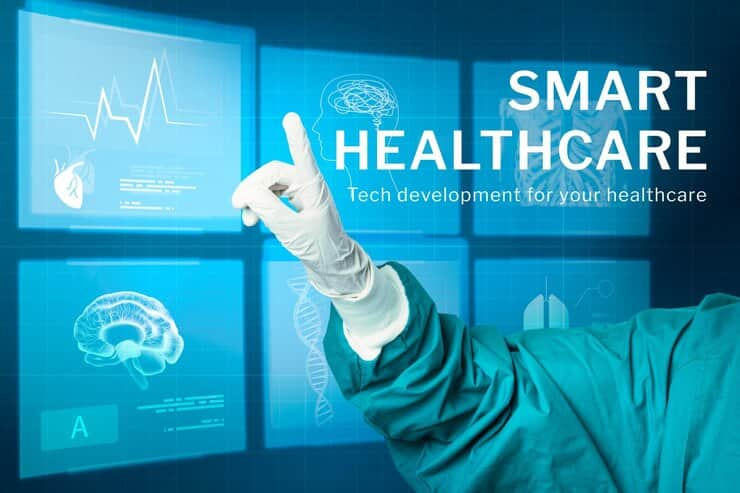In the intricate web of modern healthcare, the seamless integration of diverse data streams stands pivotal for optimal patient care. However, this amalgamation, termed Healthcare Integration, confronts multifaceted challenges impeding its smooth operation.
This guide sets forth to explore Healthcare Integration comprehensively, unravel its intricacies, address prevalent hurdles, and propose astute solutions to navigate this complex landscape.
Understanding the Essence of Healthcare Integration
Healthcare Integration seeks to harmonize varied data sources into a unified structure, facilitating fluid data flow across the healthcare continuum. Yet, obstacles hinder its potential in delivering optimal care.
The Crucial Role of EHR Integration in Healthcare
Efficient patient care faces barriers like administrative burdens, unstructured data, and disparate systems. Electronic Health Record (EHR) integration endeavors to streamline patient care by unifying data sources, crafting comprehensive care plans, and alleviating the burdens on healthcare professionals.
Tools to Conquer Healthcare Integration Challenges
The arsenal to combat integration challenges ranges from on-premise solutions to cloud-based platforms, open-source tools to proprietary software, each tailored to distinct integration requisites. The crux lies in selecting tools aligned precisely with specific healthcare service needs.
Strategies to Surmount Healthcare Integration Challenges
Interoperability hinges on standardized data formats adhering to regulations like HIPAA. This conformity facilitates smoother data integration, eradicating potential data silos.
Fortifying Health Data Privacy
Privacy breaches pose alarming concerns in healthcare integration. Strengthening data governance and compliance measures fortifies data security, while stringent access controls in cloud solutions limit risks to authorized personnel.
Learn more about optimizing healthcare efficiency through nurse scheduling.
Simplifying HL7 Integration Complexities
HL7 interfaces demand strict adherence to standards. Collaborative efforts between healthcare professionals and software vendors streamline interface assembly and accuracy, preventing data loss during system transitions.
Ensuring Data Consistency
Uniform data formats across applications are indispensable for robust integrated healthcare systems, enhancing data quality and care delivery efficacy.
Amplifying End-User Engagement
Empowering end-users with intuitive data interpretation tools enriches patient care and engagement, bridging the gap between raw data and actionable insights.
Leveraging Modern Solutions
Technologies like cloud-based integration, mobile health (mHealth), and telehealth drive integrated care delivery, adeptly managing diverse data sources and promoting seamless services.
Embracing Data Enrichment
Clinical data analytics and semantics enrich data management, aiding in population health management and enabling nuanced data interpretation for better care strategies.
Crafting Holistic Strategies
Designing agile infrastructures and fostering collaboration across healthcare supply chain levels enhance cost-effectiveness and service quality.
Charting the Course Ahead in Healthcare Integration
While these strategies offer navigational aids through integration challenges, continuous adaptation remains pivotal. Integrating new technologies, refining data processes, and fostering innovation are ongoing endeavors.
Embracing Evolving Technologies
Advancements like AI, machine learning, and predictive analytics refine healthcare delivery, promising revolutionary improvements in patient outcomes.
Cultivating Collaborative Innovation
Engaging healthcare professionals, IT experts, and solution providers in collaborative sessions fosters innovative solutions, propelling the industry forward.
Safeguarding Data Security and Privacy
Amid increasing data interconnectivity, stringent adherence to compliance, continuous vigilance against cyber threats, and robust user-centric security protocols become paramount for patient information safety.
Empowering the Future of Healthcare Integration
Educating and training healthcare professionals in integrated systems are imperative for optimized usage of evolving technologies, ultimately leading to enhanced patient outcomes.
Conclusion
By exploring complexities, understanding EHR integration, and envisioning a progressive path, we lay the groundwork for a robust healthcare ecosystem. Evolving continuously, innovating collaboratively, and prioritizing data security are pivotal for integrated healthcare excellence.
Striding ahead, leveraging modern solutions, and empowering future generations promise a future of seamlessly integrated healthcare, ensuring superior patient care and industry-wide advancement.
